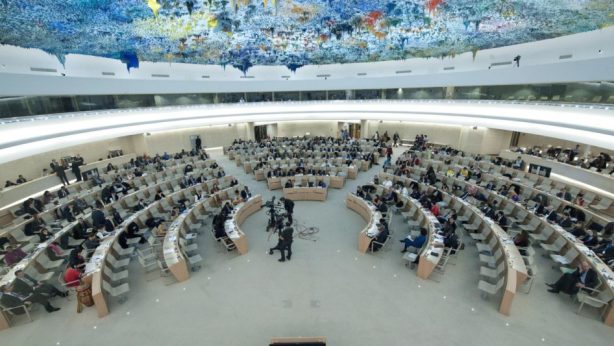Commemorating the 37th Anniversary of the United Nations Convention Against Torture
On the 37th anniversary of the entry into force of the United Nations Convention Against Torture, the Tibetan Centre for Human Rights and Democracy, Tibetan Youth Congress, Students for Free Tibet and Tibetan Women’s Association solemnly commemorates and pays tribute to Tibetan human rights defenders, dissidents, and activists who have endured and continue to endure torture— the severest form of human rights abuse.
In conjunction with the other three CSOs, the Tibetan Centre for Human Rights and Democracy hosted a panel discussion featuring four former political prisoners who were subjected to torture in Chinese detention: Geshe Tsering Dorje, a student of the late Trulku Tenzin Delek; Lobsang Yonten, who was imprisoned around 1959 for more than a decade; Geshe Ngawang Delek, who was imprisoned for the 1987 protest; and Gendun Rinchen, a tourist guide in Lhasa, who was arrested from his home in 1993, for preparing to hand over letters about human rights to a group of visiting European Community (EC) diplomats. Sherab Gyatso was also arrested around the early 2000s.
In Tibet, torture is endemic in the network of prisons and detention centres across the plateau.
Electric shocks, beatings, handcuffs, foot manacles, aerial suspension, exposure to extreme temperatures, prolonged solitary confinement, and deprivation of food, water, and sleep are just a few of the techniques commonly used by Chinese authorities to crush the spirit of Tibetan political prisoners. As severe as the physical wounds are, the psychological and emotional scars are often the most devastating and challenging to heal. A subtle form of mental torture is also inflicted on former political prisoners in Tibet. Life after prison is made extremely difficult for them: their children are often expelled from school, their government benefits are revoked, and they are constantly harassed, leaving them with no prospects for employment. Many Tibetan torture survivors suffer from recurring nightmares and flashbacks.
Today, the Tibetan Centre for Human Rights and Democracy sheds light explicitly on the harrowing case of Trulku Tenzin Delek Rinpoche, a venerated Tibetan religious and community leader wrongfully incarcerated and subjected to brutal torture. He eventually passed away in Chinese custody after enduring 13 years of egregious detention and was also denied appropriate medical care in prison.
The evidence of Rinpoche being subjected to torture during his detention, which led to his untimely death, is a clear violation of Article 5 of the UDHR, which states: “No one should be subjected to torture or cruel, inhuman or degrading treatment or punishment”. It is also a blatant disregard of the Convention Against Torture and Other Cruel, Inhuman or Degrading Treatment or Punishment (CAT), which the PRC ratified in 1988. The UN Standard Minimum Rules for the Treatment of Prisoners (SMR) defines sound principles and practices for treating prisoners. Article 22 of the SMR states that all prisoners should receive adequate medical care, which has never been applied to Tibetan prisoners, certainly not in the case of Trulku Tenzin Delek.
Additionally, under International Human Rights Law, states are obligated to conduct investigations on death in custody, requiring governments to investigate custodial deaths in order to fulfil the right to a remedy for family members if the death was caused deliberately or by negligence. The investigation sets facts necessary for the prosecution of the complicit officials and to prevent other custodial deaths. A transparent investigation into Trulku Tenzin Delek’s case, coupled with the prosecution of the responsible officials, would send a clear message that the PRC is committed to the rule of law and ending human rights violations in Tibet. Such an action would also pave the way for investigations into other deaths in custody.
In a video message to TCHRD, Nyima Lhamo, niece of Trulku Tenzin Delek, urged the international community to uncover the truth, emphasising that Trulku Tenzin Delek’s hope will continue to live on among the people and stressed the need to prevent others—whether Tibetan Buddhist leaders, singers, artists, ordinary individuals, teachers, or businessmen—from suffering the same fate in the future.
Today serves as a poignant reminder for the international community, governments, and civil society organisations to call upon China to end the systemic use of torture. As a party to the Convention against Torture and Other Cruel, Inhuman or Degrading Treatment or Punishment, the Chinese government is obligated to take adequate measures to prevent torture and prosecute torturers.
To honour and remember the victims of torture, the Tibetan Centre for Human Rights and Democracy will highlight 20 cases of custodial deaths of Tibetan political prisoners who suffered inhuman and degrading treatment in detention centres and prisons. These cases will be featured on TCHRD’s social media for the next twenty days to draw attention to their plight and demand accountability from the Chinese government.
Click here to sign the petition campaign.


